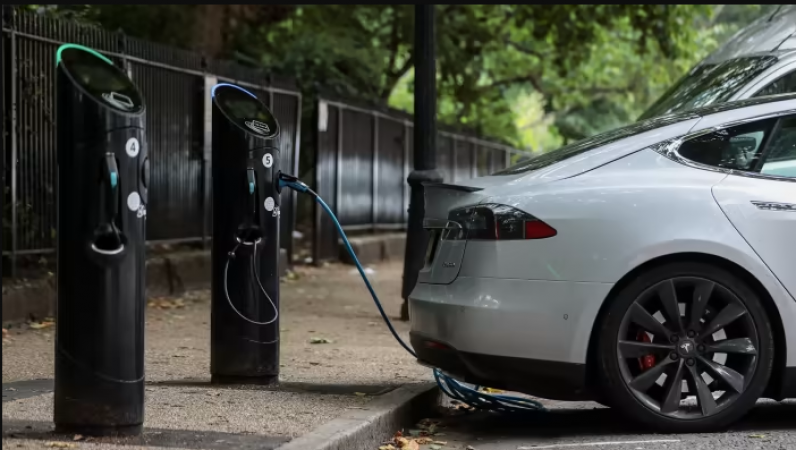
UK: Since May, the cost of using a public rapid charger to charge an electric vehicle has increased by almost £10 due to rising energy prices as a result of Russia's invasion of Ukraine.
According to a study by the RAC, the cost to charge an average family-size car has increased by 42% to more than £32 due to the rise in the wholesale price of gas and electricity. That was £13.59 more than a year ago and an increase of £9.60 from May.
Swamy lashes out at anti-Hindu violence in UK, said- 'Ghazni, Ghori, & Mughals also..'
After 2035, the UK intends to outlaw the sale of new fossil fuel vehicles, but many in the industry have expressed concern about obstacles that may prevent some consumers from switching. The cost and accessibility of public chargers are major issues, especially in urban areas.
Particularly for those who rely solely on public chargers because they lack private parking at home, the cost advantage that electric cars have over polluting internal combustion engines has been reduced by the recent spike in electricity prices.
According to the RAC, the average cost per mile for someone who only uses rapid and ultra-rapid public chargers, which are frequently found at motorway services, has increased to 18p, as opposed to 19p for gasoline cars and 21p for diesel vehicles.
After the Conservative government this month introduced price controls on energy, the average cost per mile will be limited to 9p for those who can rely on home charging. Drivers who can charge their vehicles at home will be protected from much of this cost thanks to the energy price guarantee.
'Wipeout Hindu dogs from Leicester just like you did from Kashmir..,' England's anti-Hindu violence
The RAC's spokesperson for electric vehicles, Simon Williams, stated that while charging an electric vehicle away from home is still less expensive than refuelling a gasoline or diesel vehicle, "the gap is narrowing as a result of the enormous increases in the cost of electricity."
He claimed that the data "clearly demonstrates that the drivers who use public rapid and ultra-rapid chargers the most are the ones who are being hit the hardest."
The RAC claims that consumers who use public charging stations unfairly pay VAT of 20% in contrast to only 5% VAT on domestic energy use.
The disparity in VAT rates between public and private charging, according to Roger Atkins, director of the consultancy Electric Vehicles Outlook, is "disgraceful" and presents the Treasury with an immediate opportunity to support the switch to electric vehicles.
In actuality, you don't choose to charge publicly, he said. You make a public charge out of necessity.
UK reaffirms support for fresh round of oil and gas licencing
According to the RAC, the average cost per kilowatt hour (kWh) for a UK rapid charger is 63.29p, but some businesses charge significantly more. According to the data firm ZapMap, the US automaker Tesla, which has the largest rapid charger network after opening up part of it to all brands of cars in May, charges 77p/kWh for non-Tesla drivers. With the second-largest rapid network, InstaVolt bills at 66p/kWh.
Customers were outraged when Osprey, the eighth-largest provider of rapid chargers in Britain, announced this month that the cost of its chargers would rise to £1 per kilowatt hour, a 50% increase from the previous 66p rate.
Osprey is now unquestionably the most expensive of the big rapid charger networks due to the hike. Ian Johnston, the company's chief executive, claimed that "extraordinary" circumstances involving "sky-high energy prices" had compelled the company to make the increase.
Osprey stated that it anticipated lowering its prices once it had determined what it would pay with its energy provider following the government's announcement of help for business energy bills last week. Osprey declined to add more commentary.